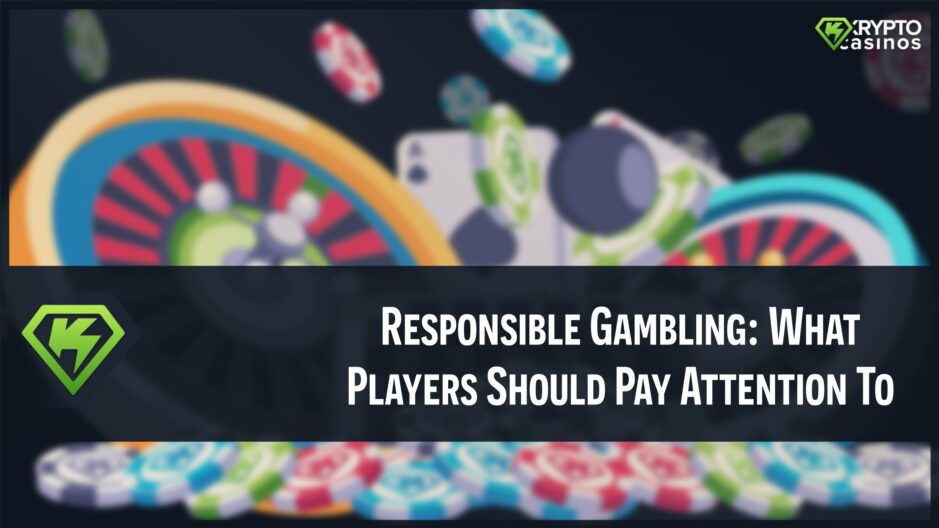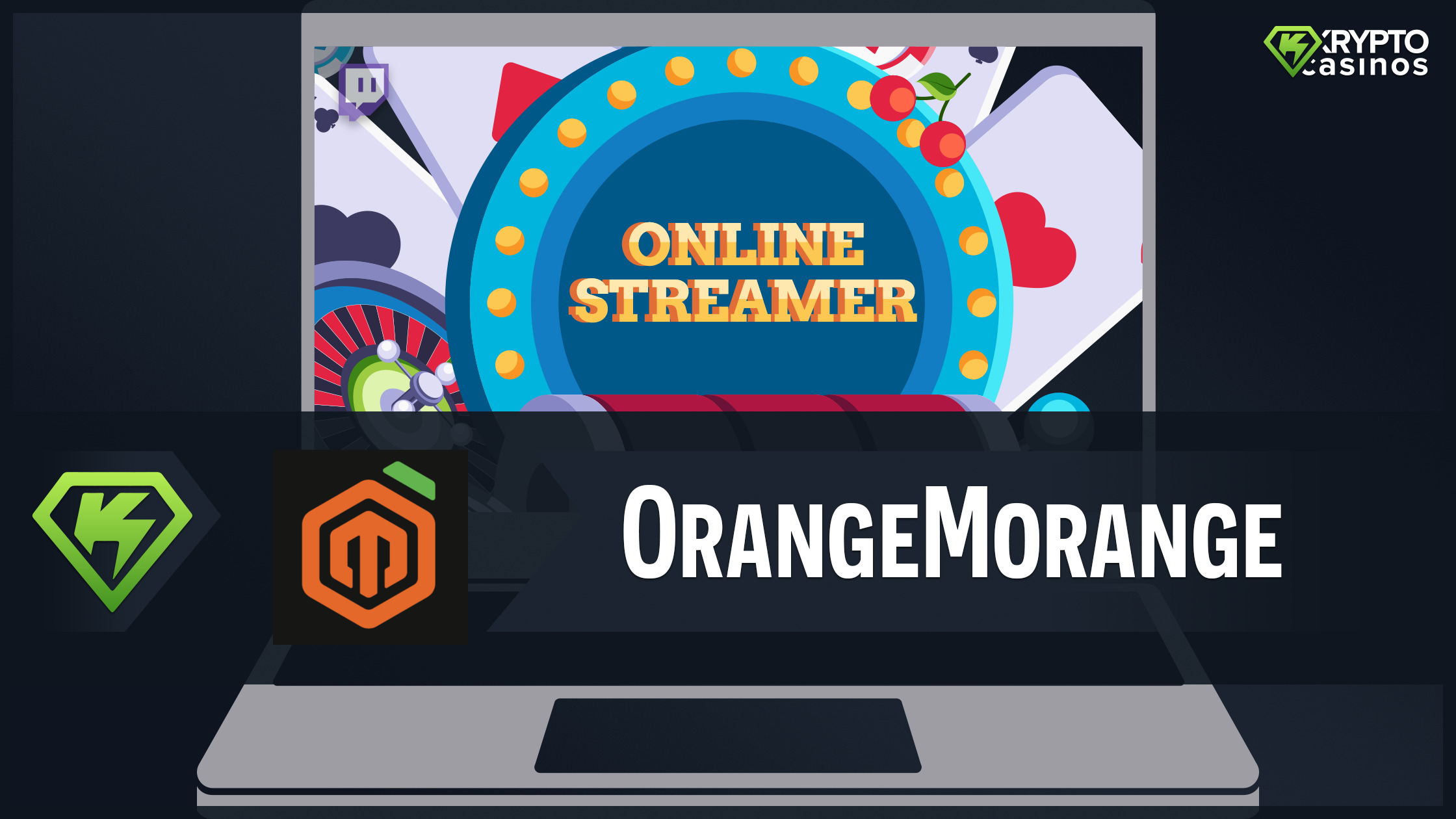Responsible Gambling: How to Stay in Control
Gambling can and should be enjoyable—as long as it’s done responsibly. In this guide, we explain how to keep your gambling behavior in check, what protective measures casinos around the world offer, and when it might be time to take a break. Learn how to recognize signs of problem gambling, which organizations can provide support, and which tools can help you stay in control.
Reading time: ~ 8 minutes

Check Your Gambling Behavior
Responsible gambling begins with honest self-reflection. While gambling can be enjoyable, it’s important to regularly take a step back and evaluate your behavior. The questions below can help you assess your habits and stay in control.
-
Am I playing just for fun, or am I hoping to make money?
Gambling should be a form of entertainment, not a source of income. If you're playing to win money or recover losses, that’s a warning sign. Wins are random and never guaranteed.
-
Does gambling affect my daily life or mood?
If your well-being depends on wins or losses, that’s a problem. Gambling shouldn’t be an escape from everyday life.
-
Am I spending more money than I can afford?
Responsible gambling means having a budget and only using money you can afford to lose. If you’re spending more than planned, it’s time to reflect on your behavior.
-
Am I playing longer than I intended or trying to win back losses?
Chasing losses can be risky. If you notice that you're spending more time or money than you intended, it may be time to take a closer look at your playing habits.
If you answered “yes” to any of these questions, it may be time to take a closer look at your behavior. Many reputable online casinos provide self-assessment tools and resources to help you evaluate your gambling habits. Taking a break or using limit-setting options can support healthier play and help you stay in control when needed.
Budget Calculation Formula
Your gambling budget should come from your disposable income—the money left after you've paid for all essential expenses. This is the amount you can use for leisure activities. It's generally recommended to spend no more than 5–10% of your disposable income on gambling. You can use the following formula to calculate your budget:
Gambling Budget = [(Net Income − Fixed Costs) × Gambling Percentage] / 100
Example 1: Monthly Budget Using USDT
A player earns 2,500 USDT in net income per month and has 1,800 USDT in fixed costs for rent, food, and other obligations. Their disposable income is calculated as follows:
I−F = 2,500 − 1,800 = 700 USDT
If they choose to allocate a maximum of 7% of their leisure budget to gambling:
B = (700×7) / 100 = 49 USDT
Result: To stay within a responsible budget, this player should spend no more than 49 USDT per month on gambling.
Example 2: Weekly Budget
If you’d like a more detailed approach, you can use this formula to calculate your weekly gambling budget:
Weekly Budget = Monthly Budget / 4
Weekly Budget = 49 USDT / 4
Weekly Budget = 12.35 USDT
Example 3: Budget Per Session
You can also plan your budget per session. If you expect to play up to 8 sessions per month, here’s how to calculate it:
Session Budget = Monthly Budget / 8
Session Budget = 49 / 8
Session Budget = 6.13 USDT
Recognizing Gambling Addiction
The signs of problematic gambling behavior and addiction have been studied by many institutions. Clear warning signs and healthy gambling behaviors have been identified:
- Entertainment Comes First: The primary goal should be to enjoy the game, not to focus on winning. A win is a nice bonus, but it shouldn't be necessary for your enjoyment.
- Clear Time and Budget Limits: Decide in advance how much time and money you’re willing to spend, and make sure to stay within those limits.
- Stopping and Taking Breaks Is Easy: If you lose interest or reach your limit, you can stop without trouble and step back into your offline life.
- Finances or Relationships Are Not Affected: Gambling doesn’t take up too much space in your life. You meet your responsibilities and don’t neglect work, family, or friends.
- Losses Are Accepted: You understand that gambling is based on chance and don’t try to recover losses compulsively. You only gamble with money you can afford to lose.
- Constant Thoughts and Pressure: Gambling occupies your mind even when you’re not playing.
- Neglecting Work, Family, or Hobbies: You start canceling plans with friends or spending more time in (online) casinos than on the activities you once enjoyed.
- Chasing Losses: After losing, you immediately bet more to win the money back instead of stopping.
- Borrowing Money: Taking out loans, borrowing from friends or family, delaying bills, or using savings to continue gambling is a clear warning sign.
Organizations That Provide Support for Gambling Problems
Gambling problems can affect individuals and families across the globe, regardless of age, gender, or background. Fortunately, there are numerous organizations dedicated to helping people manage and overcome gambling-related harm. Below are six respected organizations that provide support through confidential, accessible services in specific countries or internationally.
Many organizations offer helplines, but the specific phone number can vary depending on your location. To find the right number for where you are, be sure to visit the organization’s official website.
- Responsible Gambling Council (RGC)
- GameSense
- Gambling Therapy
- Gamblers Anonymous (GA)
- GamCare
- Gamble Aware
Responsible Gambling Council (RGC)
The Responsible Gambling Council is a Canadian non-profit organization dedicated to the prevention of problem gambling. RGC offers education, awareness campaigns, and evidence-based resources for individuals and communities. While focused primarily on Canada, its research and best-practice guidelines are used internationally to improve responsible gambling initiatives.
- Website: www.responsiblegambling.org/
GameSense
GameSense is a responsible gambling program designed to help players make informed decisions about their gambling behavior. It provides practical resources, tips, and one-on-one advice from trained GameSense Advisors. Originating in Canada, GameSense programs are now also integrated into several U.S. state and regional gambling platforms, helping players better understand the risks associated with gambling.
- Website: https://gamesense.com/
Gambling Therapy
Gambling Therapy is a global online service operated by the UK-based charity Gordon Moody. It offers free, multilingual support to anyone affected by problem gambling. Services include live chat support, multilingual resources, and self-help tools.
- Website: https://www.gamblingtherapy.org/
Gamblers Anonymous (GA)
Gamblers Anonymous is one of the longest-running peer-support organizations for individuals with gambling problems. Founded in Los Angeles in 1957, GA is based on a 12-step recovery model similar to Alcoholics Anonymous. GA meetings are available in many countries, including Australia, the United Kingdom, Ireland, Brazil, and more, with support offered in multiple languages. It remains a vital global network for those seeking help with compulsive gambling.
- Website: https://www.gamblersanonymous.ie/
GamCare
GamCare is a leading UK-based charity that provides free, confidential support for people affected by gambling harm. While services are directed toward individuals in the UK, GamCare’s website offers tools and information that are valuable to anyone seeking help with gambling, regardless of location.
- Website: https://www.gamcare.org.uk/
Gamble Aware
GambleAware is a prominent UK charity focused on education, prevention, and treatment for problem gambling. Although services like the helpline are limited to Great Britain, the educational materials and online resources are freely accessible to users from other regions.
- Website: https://www.gambleaware.org/
These organizations offer anonymous counseling, emergency hotlines, and tools. You can use them to check and manage your gambling behavior. Whether you have questions or need help: reach out and don’t let shame stop you from taking control of your life.
Tools for Self-Help and Prevention
Reputable online casinos offer a range of protection tools to help you manage your gambling habits. These tools aren’t only for those with problems but can also support experienced players in keeping control.
- Deposit and Loss limits – Keep Your Budget Under Control: You can set limits on how much you’re allowed to deposit or lose daily, weekly, or monthly. Changes usually come with a waiting period to prevent impulsive adjustments.
- Time Limits – Manage Your Playtime Consciously: If you tend to lose track of time while playing slots, setting time limits can help. When your set playtime is reached, you'll receive a warning or be logged out automatically.
- Reality Checks – Stay Aware of Your Gambling Behavior: This feature displays regular messages that show how long you’ve been playing and how much you’ve won or lost. It helps you stay mindful of your activity.
- Self-Exclusion – Temporary or Permanent Bans: If you feel the need to take a break, you can choose to exclude yourself for a specific period.
- Crypto Deposit Limits – Protection for Fast Transactions: In crypto casinos, deposits are made using Bitcoin or other cryptocurrencies. Since these transactions go through your wallet and can’t be reversed, setting a limit adds an extra layer of protection.
These features support you in maintaining controlled gambling habits. Whether you're new to gambling or a high roller, the tools are designed to protect all players equally. Many experienced players use limits strategically to help ensure long-term success. Make use of the available tools to keep your gaming experience safe and enjoyable.
Clear Guidelines and Tips: How To Protect Yourself Best
Responsible gambling means staying in control of your behavior and making sure that fun and entertainment remain the priority—not financial gain. Follow these guidelines to protect yourself in a safe and sustainable way:
-
Step 1: Set a clear budget and stick to it
Calculate your personal gambling budget based on your disposable income (see instructions above). Only use money you don’t need for bills or other obligations. If you notice you’re going over your budget, reduce your stakes or take a break.
-
Step 2: Choose licensed and reputable casinos
-
Step 3: Never play under stress, alcohol, or drug influence
You need a clear mind to make smart decisions. Gambling shouldn’t be used to cope with stress or escape problems. Alcohol and drugs can impair your judgment and lead to higher bets. If you’re emotionally unstable, it’s better to avoid gambling and focus on other activities.
-
Step 4: Accept that losses are part of the game
One of the biggest problems in gambling is “chasing losses.” That means trying to win back lost money by betting more. You need to understand that wins and losses are part of the game – no bet guarantees a payout. Once your budget is used up, end the session.
-
Step 5: Plan breaks and other activities
Regular breaks help you gain distance and reflect on your gambling behavior. Other hobbies like sports, music, or social activities reduce the risk of focusing too much on gambling. Use time limits in casinos that remind you after long sessions. It’s important to see gambling as entertainment, not a daily routine.
Conclusion: Take Action Early and Reach Out for Support
Gambling can be fun, but it should always be approached with caution. Staying within your budget, taking regular breaks, and playing only at licensed casinos are key to staying safe. However, if gambling starts to affect your personal life, finances, or well-being, it’s a warning sign.
Online casinos and support organizations provide a variety of self-control tools. From deposit limits to self-exclusion options, these features are designed to help you manage your play. If you feel like you're losing control, self-assessments and counseling can offer valuable support. Many support groups and counseling services are available—anonymous and free of charge.
Responsible gambling means recognizing the risks early and taking steps to address them. Acting early can help prevent gambling from becoming a serious issue.
Asking for Help Is Nothing to Be Ashamed Of
Admitting that gambling has become a problem takes courage—but it's the first step in the right direction. You don’t need to feel ashamed for seeking help, because gambling addiction can affect anyone. There are many organizations that offer support anonymously and without judgment. Talking to experts or joining a support group can help you gain new perspectives and regain control.
FAQs: Responsible Gambling
Watch for warning signs like constantly thinking about gambling, feeling the urge to place higher bets, or neglecting responsibilities. If you find yourself regularly chasing losses or spending more than you can afford, it may be time to reassess your gambling habits.
Safe casinos provide protective tools such as limits on deposits, losses, and bets, along with reality checks to remind you how long you've been playing. Self-exclusion options are also available, helping you stay in control and take breaks when needed.
Yes. Many online casinos allow you to temporarily or permanently exclude yourself. Systems like GamStop in the UK provide cross-provider blocking. Tools like BetBlocker or Gamban can also block access to gambling sites on your devices.
Approach the topic carefully and without judgment. Focus on offering support and expressing concern. Support organizations also provide counseling for family members. If gambling is negatively affecting finances or relationships, professional help can be beneficial.
Disclaimer: This website is for informational purposes only and does not constitute legal advice. Winnings are not guaranteed. Gambling can be addictive. Only play where legal in your region and check your local laws. Please gamble responsibly. | 18+


